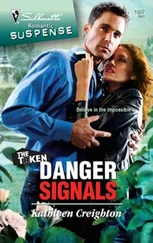There were a dozen cries of ‘Yes!’ They all were keen to get back on the Belle again. Next time they’d charge a fee.
‘There’s one more man,’ Comstock added. ‘I ought to be the last to leave. We’ve got one injured party, on the orlop. Three men can shift him out.’
He took command and pointed at the nearest three — a boatman called Henry Dolly, his wildly weathered, dark-haired son, Palmer, and one of their casual hands, an old and silent bachelor known locally as Skimmer. They followed Shipmaster Comstock below decks to Otto’s berth. When the cattle had been driven into the sea, a crewman had released him from his chain and wrapped him in his palliasse to keep him warm. The cloth, to some extent, had stemmed the blood. The wound and swelling on his forehead were mauve. His ankle was stiff and raw with pus. He was conscious but inert. Only one eye opened. Only one eye could.
‘Are you sleeping, Otto?’ Comstock said. He was embarrassed by the silence and the stares of the three men. Perhaps they blamed him for the wounds. But they were speechless from surprise. They’d never seen an African before. The darkest they encountered was a youth like Palmer, a ripened russet face with sable hair. They weren’t used to this topography. They couldn’t tell his age or temperament or judge his character. His hair was like black chimney moss. He seemed to have a woman’s lips. He hardly had a nose. They were reluctant to hold him by his arms and legs. They couldn’t bring themselves to touch his skin. Instead they lifted Otto in his palliasse. He was a very heavy man, and it took twenty minutes negotiating the carcasses of cows, the timber debris and the companion ladders, before they reached the deck. They put him in the Dolly boat and pushed off for the beach. Already there were forty people and a dozen carts waiting with Rosie and Miggy Bowe. Two wagon-harnessed horses and one horse ridden by the agent, Walter Howells, and made frisky by the irritation of a loosening shoe, stood on the shingle with their backs against the sea. It was too cold to wade in to help the Americans ashore. They had to manage it themselves — except that when one older man, John Peacock, fell into the water, Walter Howells, to some derision mixed with cheers, rode his horse into the breakers and hauled the sailor out by the collar of his cork safety-jacket. ‘Save a sailor from the sea,’ someone recited, ‘And he will prove your enemy. He’ll have, once he is out of water, Your life, your money and your daughter!’
Otto was not touched. Comstock threw sea-water in his face to rouse him. Otto found the energy to swing his damaged legs across the bows of the rescue boat and try to find his footing in the shallows. He sank into the water. Its iciness shocked him. The salt was painful on the wounds, but cleansing, too, and healing. He was the last to make his way to shore. They found a bed for him, in seaweed on the half-loaded horse-drawn cart. They gathered round to point and shake their heads and giggle nervously. Miggy was the first to stretch her arm and touch him on the toe, where dry, dark blood had been made pasty by his short walk in the sea. Then everybody touched the toe, in turn. They ran their fingers across the nail and felt the skin, the pink below the toe, the brown above, the blood, and cold.
The beach was never busier, except at pilchard time. The sailors and the locals hugged and shook hands. Three dogs ran wild, experimenting with the sea and crowds. The cattle moved inland. Miggy looked for Palmer Dolly. Perhaps he’d shake her hand. Or they might hug. But he’d gone off in his father’s boat. Instead she made do with the attentions of the younger Americans, who now could see, despite her breeches, that she was a girl, a pretty one. She wore their ensign round her throat.
‘This miss is calling out for help,’ they joked. ‘All hands stand by.’
The sailor, Ralph Parkiss — blond, teasing and boyish — attempted first to take away her ensign scarf. And then, playing the innocent, touched her at her waist. The whole of Miggy flushed. She’d gladly press her lips on any young man there. A fire was lit — in her, and on the beach. They warmed and dried themselves as timbers from the Belle smoked grey. The three seine boats pulled beyond the bar and soon were out at sea. The Belle of Wilmington settled into the wet sand of the bar. It would not break up; the seas were sheltered there, and shallow. On Monday there would be a rising tide of sufficient depth, with luck and wind, to float it free again. Captain Comstock turned his back on his command. He’d have to wait and see what happened to the Belle , and he would rather wait and see in some dry place, on solid land. He was not the hero of the day.
The Americans, with Otto sleeping in the cart, and Whip in tow, embarked upon the six-mile walk to Wherrytown, where there was food and lodging and where, by now, Aymer Smith, that other dreaming voyager by sea, had found the inn. Walter Howells rode ahead on his laming horse to spread the news. The air — scrubbed and quietened by the storm — was now so still that Miggy and her mother could take a lighted piece of wood and carry it the half-mile to Dry Manston to start a celebration fire in their own home. And what was there to celebrate, besides the passage of a storm? Much. Much. Much.
AYMER SMITH was taken to the inn in Wherrytown by George, the parlourman-cum-porter, whose job it was to bully custom from any ship that docked. George didn’t take to the Tar ’s single passenger, the unpromising and unattractive Mr Smith. The man’s breath was foul. And his bookish jollity, his height, his thinness, his insistence that they shake hands like old acquaintances and then take turns to ‘bear the burden’ of his carriage bag on the short walk between the quay and the inn, were misplaced, misjudged, unbecoming. If they had to share the burden, would they also share the tip?
The night gale, which had lifted tiles and flung back doors in Wherrytown, had left the quayside scrubbed and clean. Aymer Smith remarked it was ‘a fresh and handsome town’, but, steady though he was in conversation, he had climbed awkwardly from the cabin to the deck. His shoulder was bruised, or worse, from the tumble from his bunk. His throat was sore and hot. His legs were still at sea. He was shivering, from cold and apprehension and timidity. George could only guess what business such a man could have in Wherrytown at that time of year, but what he knew was this, that Aymer Smith would not be an inspiring presence at the inn. Here was a moper. Here was a book snuffler. Here was a man who couldn’t sing.
Perhaps he couldn’t sing, but God the man could talk!
‘What kind of lodging are you taking me to?’ he asked George, in a voice that attempted informality but managed to be both teasing and condescending. ‘Tolerable, I hope.’
‘Ours is the only inn,’ George said. He could think of no better commendation. ‘It’s us or nowhere in this town.’
‘What is the name of this grand inn?’
‘It has no name — nor any need of one. It is the only inn.’
‘Indeed, but then this is the only ship in dock, and I its only passenger, and yet we both have names. It would not do, I think, to call me simply “Passenger” or this vessel “Ship” because we are, for the moment, unique.’ He allowed George a moment to keep pace with this Comedy of Wisdoms. ‘Names, it is true, are mostly useful should one need to distinguish one man, one ship, one inn from another. But they are helpful, too, for signifying character. So, were your inn known as the Temperance, then I could well imagine its mood and its sobriety. The Commercial has a more convivial ring, I think. And the Siren or the Venus? Well, I should not wish to take a room in such a place, unless that room had thorough locks on every door. What do you say?’
Читать дальше












